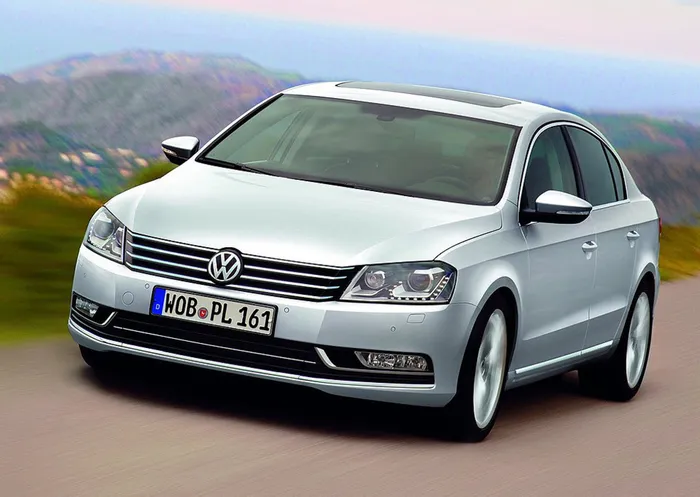VW America cuts prices, sells more

You can get a VW Passat like this in the US for less than $20 000 (R139 000). You can get a VW Passat like this in the US for less than $20 000 (R139 000).
Lower prices are helping Volkswagen with its plan to quadruple sales in the American market.
Sales for the first seven months of the year outpaced the market with a 22 percent rise to nearly 150 000 vehicles as lower entry-level prices dramatically expand VW's reach.
The Passat, Golf, Beetle and Jetta now start at less than $20 000 (R139 000).
The company has taken some flak in the automotive press for the somewhat stripped-down base models but Volkswagen Group of America chief executive Jonathan Browning insisted that it has not "diluted the heart of the brand".
"The DNA is the same, the engineering is the same, the quality is the same," he said.
"Even the entry-level Jetta, if you drive it enthusiastically on the highway, it feels planted on the road and has all those qualities that make a VW."
Volkswagen aims to be the world's leading automaker by 2018 and to expand its global sales to 10 million a year. The US figures prominently in those plans, with sales targets of 800 000 a year - up from 213 000 in 2010 - and 200 000 Audis, more than double the 83 000 sold last year.
"we may even see opportunities for new products such as the Golf R, that really reinforce the qualities of the brand," Browning said, "but the first job is to really go deeper into the segments."
A major component of VW's push is a $4 billion investment in the US, including a $1 billion plant in Tennessee, with a capacity of 150 000 vehicles a year, that opened in May.
The plant has the lowest labour costs in the US - $38 (R265) an hour for wages and benefits, compared with $44 (R305) at Hyundai, $47 (R325) at Nissan, $49 (R340) at Chrysler, $50 (R350) at Honda, $55 (R380) at Toyota, $56 (R390) at General Motors and $58 (R405) at Ford, according to the Centre for Automotive Research.
The United Auto Workers union has targeted US factories of foreign brands for recruitment but sources at VW say the Tennessee plant will probably remain union-free.
Browning said that while it remained the workers' decision, the VW's working relationship with employees was "off to a good start" and he was "very keen to work closely with the employees to address issues at the plant as they occur."
He added that Volkswagen had also revamped its marketing - including a new ad campaign that made a huge splash during the American football Super Bowl championship game - and was working to improve its customer service and overcome persistent quality problems.
VW expanded rapidly in the US in the 1960s, reaching five percent market share before it was overtaken by Japanese competitors in the 1970s. By 1993, the company's market share had dropped to a low of 0.44 percent.
Industry analyst Bill Visnic commented: "They had a steady decline in the face of Japanese competition because the Japanese built a reputation for bulletproof quality and reliability. They just became automatic buys.
"If your choice was a VW Passat or a Honda Accord, it was a no-brainer. Customers were buying an ultra-reliable Japanese car that was $2000 (R14 000) cheaper than the equivalent VW."
VW also saw its sales decline because of quality and reliability problems, Visnic said, along with a failure to design vehicles for the US market
Browning agreed, saying: "We lost touch with our American customers."
But, he pointed out, the brand's new focus has already borne fruit - its US market share has jumped one percent over the past three economically turbulent years to 3.04 percent in 2010. - AFP
Related Topics: